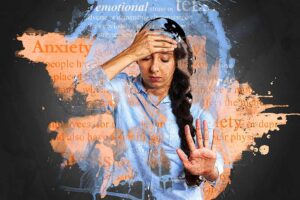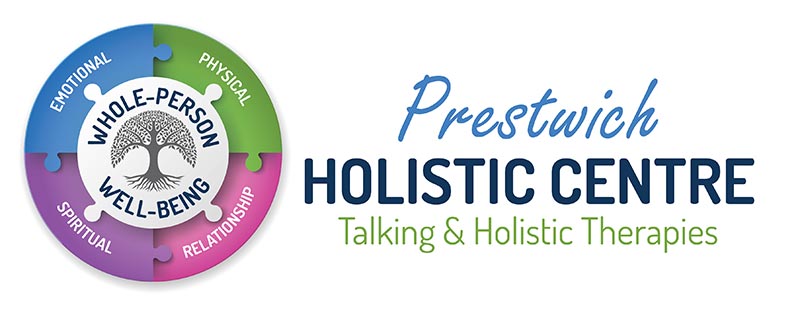Anxiety

What is Anxiety?
Anxiety is something that everyone experiences at some time. It is an entirely natural response to stress or danger.
Anxiety is often described as a feeling of unease, worry, or fear. It can be helpful in certain situations, such as preparing for an important event, such as a job interview or avoiding potential threats, like an unruly crowd.
However, when these feelings of worry or even fear become excessive, persistent, or disproportionate to the situation, it can interfere with daily life. When this happens, it may indicate an underlying issue that needs help to overcome. It is rarely something that goes away on its own.
How Common Are Anxiety Disorders in the UK?
In the UK, anxiety disorders are among the most common mental health conditions. Approximately 1 in 6 people in England report experiencing a common mental health problem, such as anxiety or depression. Women are more likely to experience higher levels compared to men. Anxiety disorders can affect individuals of all ages, but younger people, particularly those aged 16 to 29, are more likely to experience such deep-seated worries.
When does Anxiety become a Mental Health Problem?
Anxiety becomes a mental health problem when it is persistent and overwhelming. At this stage, it usually interferes with daily activities. Sometimes to the point of damaging relationships or affecting work. In extreme cases, it can prevent the sufferer from functioning and interacting with the outside world.
We all have times when we are anxious, but when the anxiety starts to affect our daily lives, especially if this has continued for six months or longer, then professional help should be sought.
What Does Anxiety Feel Like?
Physically, individuals may experience symptoms such as a rapid heartbeat, muscle tension, fatigue, and difficulty concentrating.
Anxiety can also lead to sleep disturbances, such as trouble falling or staying asleep. The lack of sleep is part of the vicious cycle some find themselves in.
Symptoms of Anxiety Disorder
Anxiety problems can manifest in various ways, both physically and emotionally. Common emotional symptoms include excessive worry, restlessness, irritability, and a sense of impending doom.
Anxiety is generally viewed as a disorder when it impacts the quality of your daily life. Each person is an individual, so the symptoms of the disorder will vary. Symptoms may include:
- A general feeling of restlessness or feeling something terrible is about to happen.
- Difficulty concentrating, often described as a ‘mind fog’.
- Disturbed sleep or difficulty getting to sleep.
- Persistent worry or fear that isn’t directly related to your current situation but is difficult to control.
- Feeling unusually or inexplicably tired or fatigued. Often accompanied by low energy levels.
- Physical symptoms include breathlessness, rapid heartbeat, muscle tension and aches.
One common symptom is excessive worry about many aspects of your life. These could be work, finances, relationships, health. It is quite normal to be concerned about any or all of these to some extent. It is when the anxiety is uncontrollable that professional help should be considered.
Panic Attacks
Extreme anxiety can result in a panic attack. Panic attacks can be terrifying. These are episodes of intense, often irrational fear that can come on for no reason and without warning. Once you have experienced a severe panic attack, the fear of panic attacks themselves can generate extreme anxiety.
Panic attacks can involve physical symptoms. Shortness of breath, a racing heart, sweating and trembling are just some of the symptoms that may be involved. The physical impact can be strong enough that sufferers may believe they are having a heart attack, which adds to the panic.
Despite the strong emotional and physical impact of a panic attack, they are not life-threatening. Typically, they subside quickly, within minutes.
Treatment for Anxiety Disorder
There are various highly successful treatments for anxiety disorder. If you feel you suffer from an anxiety disorder, you should contact professionals, like the therapists at Prestwich Holistic Centre, who can provide a diagnosis and suggest the best treatments.
Treatments will depend on the individual and the type of anxiety disorder. In some cases, medication is used. Cognitive Behavioural Therapy (CBT) is a highly effective approach that may be used on its own or in conjunction with medication.
Some sufferers have also found that simple lifestyle changes like exercise and stress management techniques can help reduce anxiety.
Our therapists will work closely with you to help you choose the right treatment for your lifestyle and situation.
Anxiety Disorder is treatable, and no one needs to live in a constant state of anxiety.
